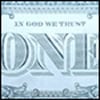Tariffs are in the news these days, but taxes have always been a big deal. In fact, as we explain in our article What Does the Torah Say About Jews and Taxes?, high taxes were one of the reasons ancient Israel split into two separate kingdoms—Judea and the Northern Kingdom.
Tariffs are a type of tax placed on imports and exports. Governments use them to raise money and control trade, often by making foreign goods more expensive to protect local businesses.
Some people argue that tariffs help the economy, while others believe they do more harm than good. We’ll leave that debate to the experts. Instead, let’s explore the first mention of tariffs in Jewish history, their role in Jewish law, and what they can teach us about serving G‑d.
Abraham, Sarah and the First Mention of Tariffs
The earliest mention of tariffs in Jewish history goes all the way back to Abraham and Sarah.
In the Book of Genesis, we read that when a famine struck the land of Israel, Abraham traveled to Egypt with Sarah. But Abraham was worried. Sarah was so beautiful that he feared the Egyptians would kill him to take her for themselves.1
The Midrash2 tells us that to protect Sarah, Abraham hid her inside a box. When they reached the border, the customs officers stopped him and demanded that he pay a duty. Abraham agreed.
"Are you carrying garments?" they asked.
"I will pay the duty for garments," he replied.
"Gold?"
"I will pay for gold."
"Silk? Gems?"
Each time, Abraham agreed to pay the tax.
Still, the officers insisted, "You cannot pass unless you open the box and show us its contents."
When he finally did, Sarah’s radiant beauty lit up all of Egypt.
Paying Fair Taxes
Jewish law is clear: people must obey the law and pay taxes, including customs duties.3 Someone who evades duties and taxes is not just considered a common thief; he is regarded as one who offends the community as a whole and “robs the public.”
However, the tax must be fair. If a government unfairly targets a particular race or ethnicity, that tax is considered unjust.
Unfortunately, throughout history, Jews were often forced to pay extra taxes simply because they were Jewish. Under Roman rule, it was called the fiscus Judaicus. In Christian Europe during the Middle Ages, there was the opferpfennig, and in Muslim lands, the kharaj tax.
Shatnez and Avoiding Customs Fees
The Talmud discusses customs duties in an unusual way—through the laws of shatnez (the prohibition against wearing garments made of both wool and linen).
In Talmudic times, customs collectors didn’t tax the clothes people were wearing. Based on this, the Mishnah teaches that a person cannot wear a shatnez garment, even if it’s layered over ten other garments, just to avoid customs fees.4
The Talmud5 remarks that this ruling does not align with Rabbi Akiva’s view, as taught in a Baraita: [The Tanna Kama teaches] Avoiding customs by wearing a shatnez garment is prohibited. However, Rabbi Shimon, quoting Rabbi Akiva, states that it is permitted.
The Talmud explains their disagreement: Rabbi Akiva holds that an unintentional act (davar she’eino mitkaven) is permitted. Since the person’s intent is to evade customs fees, not to benefit from wearing shatnez, it’s allowed. The opposing opinion holds that even an unintentional act is forbidden.
But does that mean evading taxes is ever okay? Doesn’t Shmuel state, Dina d’malchuta dina—"The law of the land is the law"?
To resolve this, Rabbi Chanina bar Kahana explains that the Baraita refers to an unscrupulous tax collector with no set limits on what he may collect. Alternatively, Rabbi Yannai’s school suggests the case involves a self-appointed customs collector.
No Customs Officials Needed
The idea of customs (and smugglers) brings to mind the following story, which serves as a lesson in our divine service.6
It was the eve of Passover, and Rabbi Levi Yitzchak sensed that a harsh decree was being passed against the Jewish people in Heaven. He knew he had to act quickly.
That morning, after the burning of the chametz, Rabbi Levi Yitzchak of Berditchev went out to the marketplace. There, he approached a non-Jewish merchant.
"Do you have silk from abroad?" Rabbi Levi Yitzchak asked him.
"I do," the man replied.
"How much do you have?" the rabbi continued.
"I can get you as much as you want," the merchant responded.
Then, Rabbi Levi Yitzchak turned to a Jewish merchant.
"Do you have any chametz?" he asked.
The Jew gasped. "G‑d forbid, Rabbi! I have removed every crumb!"
Rabbi Levi Yitzchak, the great defender of Israel, lifted his eyes to Heaven and declared:
"Master of the Universe, behold Your Chosen People! The Emperor of Russia is a mighty king. He has armies, weapons, and prisons to punish those who disobey him. He has banned the import of foreign goods and stationed guards at the border. Yet, people still smuggle all kinds of merchandise and sell them openly.
“But You, Master of the Universe, wrote in Your Torah: 'No chametz shall be seen in your possession.' There are no guards, no borders—yet on the eve of Passover, after the appointed time, not a single crumb of chametz can be found anywhere in all of Israel! Who is like your nation of Israel?"






Join the Discussion